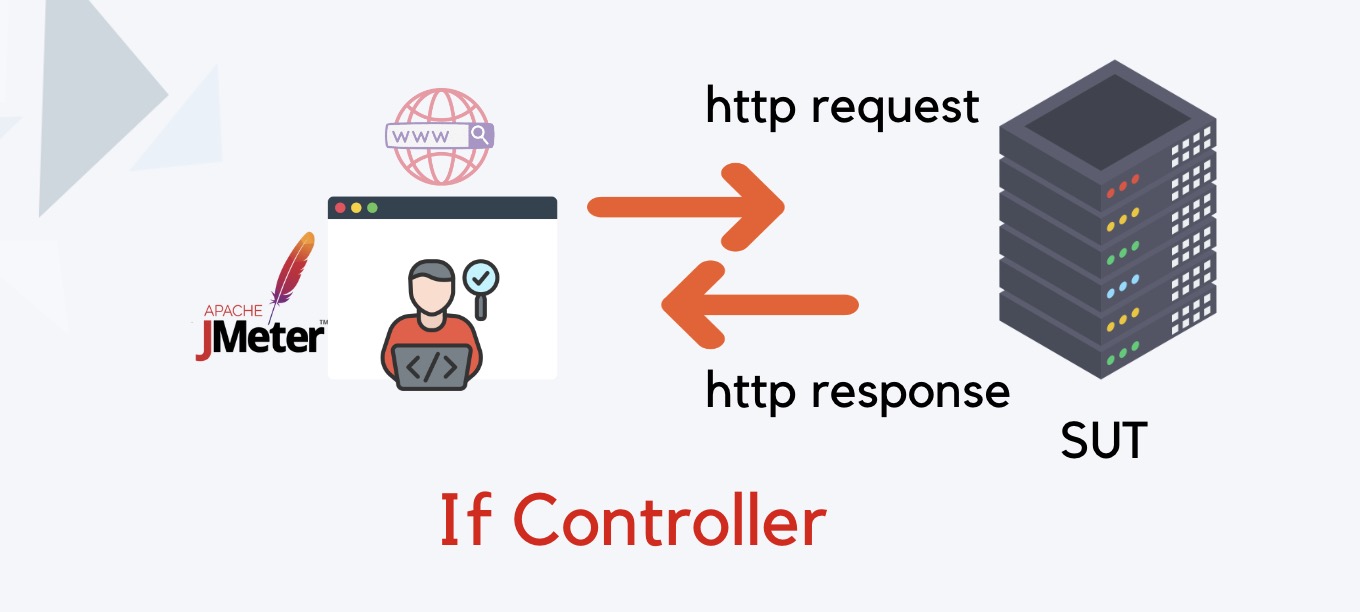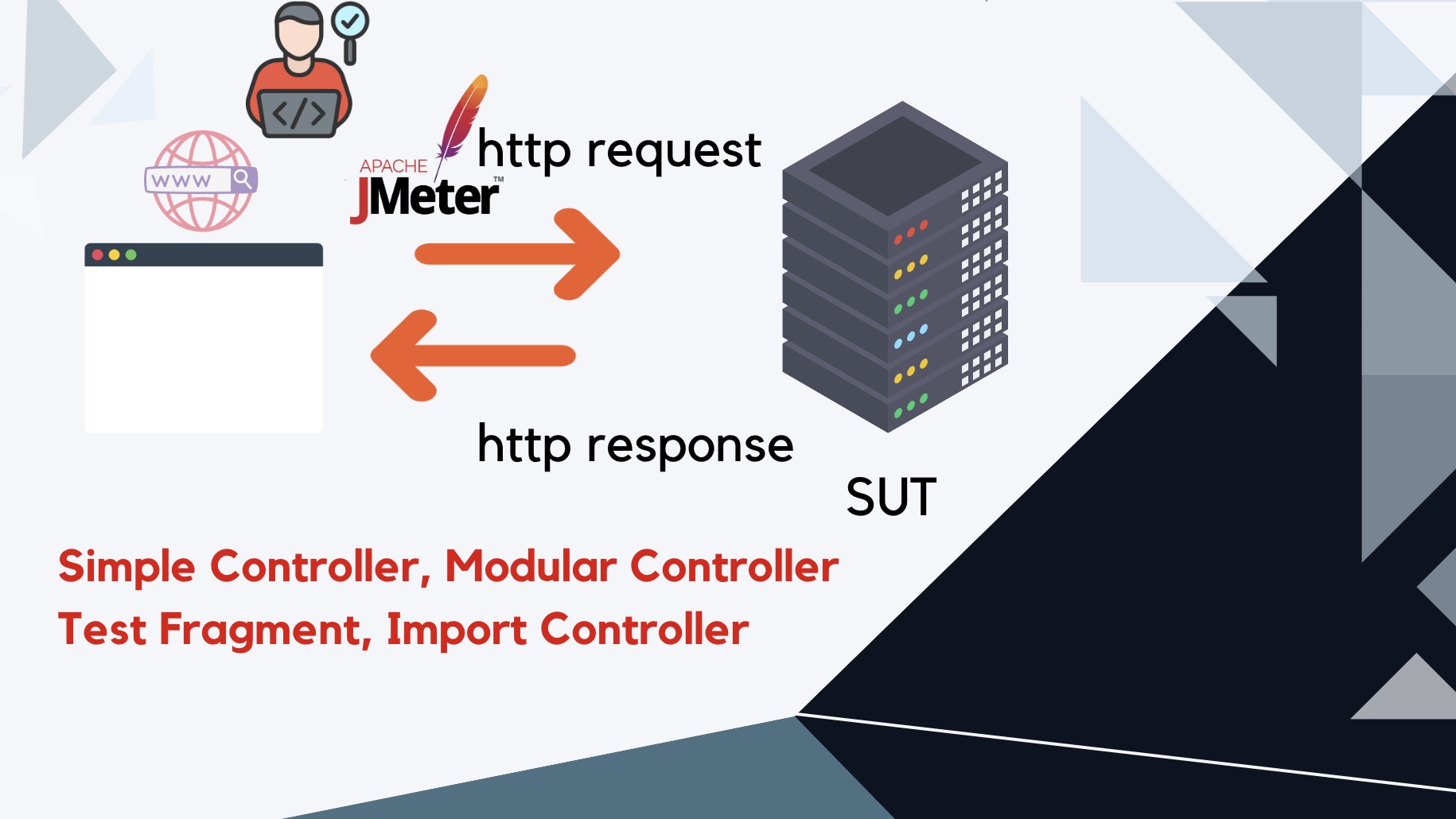If Controller is one of the most important controllers. In JMeter, the “If Controller” is used to execute its child elements only when a specified condition evaluates to true. To evaluate all child elements under the “If Controller,” we can use a combination of a condition and well-designed child elements.
Here’s an example:
Scenario: Execute All Children If a Condition is True Suppose we want to execute three HTTP requests under the “If Controller” only if a variable executeCondition is set to “true”.
Test Plan Structure
Test Plan
- Thread Group
If Controller (Condition: ${executeCondition} == "true")
- HTTP Request 1
- HTTP Request 2
- HTTP Request 3
Steps to Create This:
Step 1: Add a Thread Group:
- Right-click the Test Plan → Add → Threads (Users) → Thread Group.
Step 2: Add a User Defined Variables:
- Right-click the Thread Group → Add → Config Element → User Defined Variables.
- Add a variable, e.g., executeCondition, and set its value to true.
Step 3: Add an If Controller:
- Right-click the Thread Group → Add → Logic Controller → If Controller.
- Set the condition to
${executeCondition} == "true.Step 4: Add HTTP Request Samplers:
- Right-click the If Controller → Add → Sampler → HTTP Request.
- Create three HTTP requests (or any other child elements).
Example
Here I give you the example cases to practice the condition scripting: In the If Controller’s “Condition” field, you would enter:
${__groovy(vars.get("userType") == "admin")}
This condition checks if the variable executeCondition is equal to “true”. If the condition evaluates to true, all child HTTP Request samplers will execute.
Output Example:
- If executeCondition = true: JMeter runs HTTP Request 1, HTTP Request 2, and HTTP Request 3.
- If executeCondition = false: JMeter skips all child elements under the “If Controller.” Notes:
- Ensure proper scoping of variables to avoid conflicts.
- Use Debug Sampler to verify variable values during test runs.

Explain about: Evaluate for All Children option
The “Evaluate for All Children” option in JMeter’s If Controller determines how the condition is evaluated when the controller has multiple child elements. Here’s a detailed explanation with examples of what happens when this option is checked or unchecked:
Scenario Setup: You want to execute some child elements (e.g., HTTP Requests) under an If Controller based on a condition, and you want to observe how enabling or disabling “Evaluate for All Children” impacts execution.
We have the example Test Plan
Thread Group
User Defined Variables
myVar = 1
If Controller (Condition: ${myVar} < 3)
HTTP Request 1
HTTP Request 2
When “Evaluate for All Children” is Unchecked (Default Behavior)
- The condition is evaluated once when the If Controller is reached.
- If the condition evaluates to true, all children are executed sequentially.
- If the condition evaluates to false, none of the children are executed. Example:
- Initial Value of myVar: 1.
- Condition: ${myVar} < 3.
Execution Flow:
- The condition ${myVar} < 3 is evaluated when the If Controller is reached:
True (1 < 3). - Both HTTP Request 1 and HTTP Request 2 are executed.
- If myVar is updated by one of the child elements (e.g., a PostProcessor modifies it), the new value does not affect the execution of subsequent children.
When “Evaluate for All Children” is Checked
- The condition is evaluated before each child is executed.
- If the condition becomes false during execution (e.g., due to a variable update), subsequent children are skipped. Example:
- Initial Value of
myVar: 1. - Condition:
${myVar} < 3.
Execution Flow:
- The condition ${myVar} < 3 is evaluated before executing HTTP Request 1: True (1 < 3), so HTTP Request 1 is executed.
- Suppose HTTP Request 1 updates myVar to 4 (e.g., using a PostProcessor or JSR223 script).
- The condition is re-evaluated before executing HTTP Request 2: False (4 < 3), so HTTP Request 2 is skipped.
Use Case Examples:
- Unchecked: Use this when you want a consistent execution of all children once the condition is met, regardless of variable changes during execution.
- Checked: Use this when you want dynamic behavior where children are skipped if the condition changes during execution.

 Software Testing Sharing
Software Testing Sharing